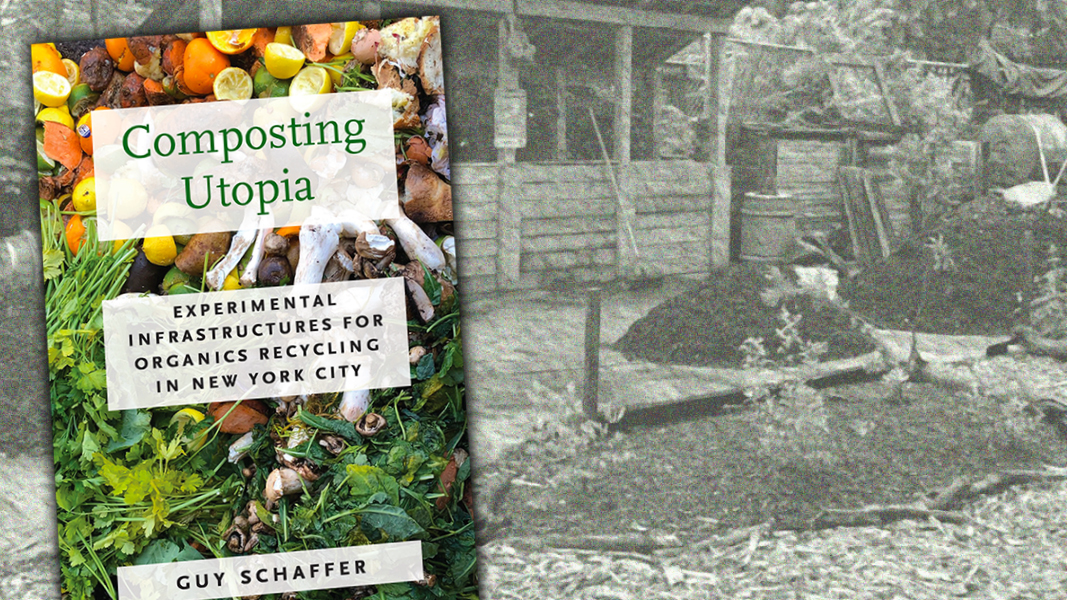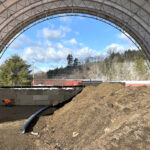Top: Photo by Guy Schaffer
The introduction to a new book, Composting Utopia: Experimental Infrastructures for Organics Recycling in New York City by Guy Schaffer, begins with this paragraph: “This book is about compost and hope, and the way that both are produced in experimental infrastructures in New York City. The infrastructures at the emotional core of this book — community compost sites and compost microhaulers — take in organic waste and transform it into compost that feeds street trees, mitigates flooding, grows food, and supports neighborhood gardens. These are grassroots experiments in sociotechnical systems building, where activists articulate alternative networks of relationships between technologies, values, knowledges, microbes, information systems, habits, relationships, wastes, and people. In the process, they create spaces in which people can feel active hope for a sustainable, just future based on the visions and values of on-the-ground communities. Experimental infrastructures for compost aren’t solutions to the city’s waste problems, but they have helped me to feel hope for the future of waste management. I hope that by reading about them, you might feel the same.”
Drawing on three years of ethnographic fieldwork with community composters and microhaulers in New York City, alongside the rollout of the city’s curbside organics collection system, Composting Utopia describes how local, grassroots organizations intervened in the city’s waste system, enacting change and presenting an alternative vision of the composting city. As Shaffer — a lecturer in science and technology studies at Rensselaer Polytechnic Institute —argues, movement-driven infrastructure projects develop new tools for organizing the world, give communities agency over urban design, and promote just sustainability.
Composting Utopia’s chapters cover the “Genealogy of Municipal Organics Recycling; The NYC Curbside Organics Collection Pilot: Building the Market for Organics Recycling; The NYC Compost Project: Locally Meaningful Composting in Partnership with DSNY; and BK ROT: Composting Neoliberal Waste Management to Model Just Sustainability.” The book concludes with Schaffer’s “Lessons from the Compost Heap.”














